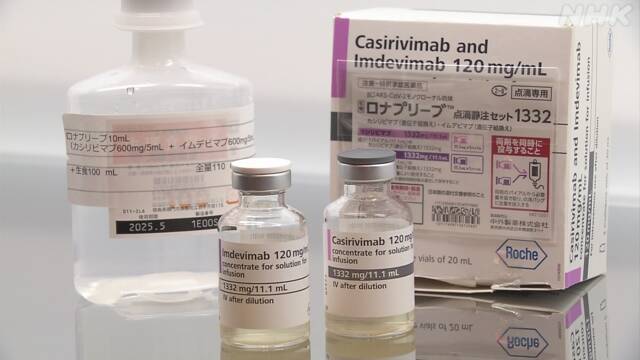"Antibody cocktail therapy," which is used to treat mildly ill patients with the new coronavirus, is expected to be effective in preventing its aggravation, and its administration in outpatient clinics has begun.
Hospitals that are advancing administration need to prepare beds for outpatients in case of side effects, and face the problem that it is difficult to accept many patients due to the ongoing pressure on medical care.
"Antibody cocktail therapy" was approved in July for patients with mild to moderate coronavirus disease, and according to the Ministry of Health, Labor and Welfare, it will be used by about 13,000 people nationwide by August 31. I am.
Initially, it was intended only for inpatients, but administration in outpatient clinics has also begun, and outpatient administration began on September 3 at Showa University Hospital in Shinagawa Ward, Tokyo.
The administration is mainly for patients aged 50 years or older and at risk of aggravation such as underlying disease, and is administered over 1 hour in a dedicated private room. At the hospital, the patient waits for about 2 hours for health observation. I am taking measures to get it.
At the hospital, it has been administered to a total of 26 inpatients and outpatients, and many patients have had their fever and cough subsided, and no one has become severe or has side effects.
On the other hand, it is necessary to secure a bed for hospitalization in case of side effects to outpatients, but since the number of infected people continues and the bed is filled, from 2 people a day The limit is to accept four people, and the hospital faces the challenge of not accepting many patients.
Hironori Sagara, the director of the hospital, said, "It is necessary to put in place a mechanism for cooperation, such as having local hospitals and clinics participate in post-treatment management."

